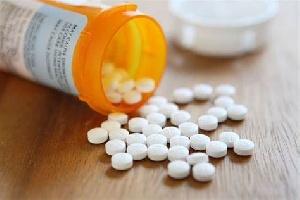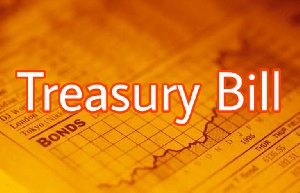Health News of Monday, 21 April 2025
Source: www.ghanawebbers.com
What the opioids boom in Ghana says about the cocaine circus
Two months ago, the BBC released a documentary about dangerous opioids in West Africa. Countries like Ghana are facing an influx of these drugs.
The documentary revealed that reputable companies were involved in this trade. It seemed these drugs were not smuggled but imported openly.
After the documentary aired, Ghana's FDA confirmed that Aveo and Westfin were registered partners of Samospharma. This company was cited for importing and selling some of the opioids through its e-pharma platform, DrugNet.
Samospharma reacted angrily. They threatened to sue the BBC and called the FDA’s statements false. They demanded a public retraction and an apology.
In Ghana, public advocacy often leads to endless debates without resolution. After much media noise, issues fade away without clear outcomes or accountability.
This problem stems from a gap between political accountability and policy accountability. While democracy may ensure political oversight, it does not guarantee effective policy enforcement.
Policy accountability requires a strong national audience capable of influencing change. In Ghana, this audience is weak, leading to confusion rather than clarity in discussions.
As a result, citizens have many voices but little impact on policy outcomes. This phenomenon is termed "political dysphonia."
Political dysphonia explains why democratic countries in Africa struggle with policy accountability. Government officials often evade consequences for poor performance.
When issues like opioid trafficking arise, officials create “performances” instead of addressing problems directly. Their goal is to appear as if they resolved the issue through spectacle.
Recently, the Health Minister staged a bonfire to burn seized opioids supposedly headed for Niger. The security services also participated in this display for cameras.
Weeks later, no information has emerged about how banned products entered legal channels in Ghana. No one has been held accountable at any stage of importation or distribution.
Civil society groups in Ghana are small but active despite limited resources. They have gathered data across various agencies and built analytical algorithms using AI tools.
Our findings reveal deep-rooted issues within this crisis. One company appears central to the trafficking network but claims its brand was impersonated.
Regulatory bodies seem unable to solve this mystery effectively. We used our algorithms to analyze key players involved in this ecosystem further.
We will outline some findings here while expressing doubts about regulatory transparency regarding narcotics trafficking in Ghana.
Recent claims about a global medical operator smuggling cocaine into Ghana reflect similar distractions from genuine accountability efforts. More citizen involvement is needed for real improvements.
Our analysis shows that beyond those mentioned in the documentary, other individuals and companies are implicated too. Data suggests over 200 million units of opioids entered Ghana recently!
One intriguing entity is linked to Dr. Bandoh, who supports a pharmacy school. This entity has sophisticated e-commerce capabilities selling prescription-only Tramadol online despite FDA denials about its licensing status.
Some software companies appear as importers of opioids from Aveo according to trade databases we analyzed.
Aveo's partnership with Westfin led to increased shipments early this year.
The spike in shipments does not indicate peak levels; it reflects market demand since the pandemic began.
After Westfin's entry into the market, individual importers became more active despite laws allowing only companies to import drugs.
Many flagged consignments had source countries listed as South Africa or Egypt while originating from India—raising questions about authenticity.
The system seems so porous that tracing consignment origins accurately is nearly impossible.
We confirmed claims from the BBC documentary that traffickers use Ghanaian ports openly for banned opioids before transporting them elsewhere.
Banned opioids are cleared by registered agents who pay all necessary fees transparently.
In disputes between Samospharma and FDA over eye-drop manufacturers, records show conflicting information involving Aveo’s role.
Our analysis reveals patterns among e-commerce portals and established clearing services facilitating large-scale opioid imports into Ghana.
If transparent transactions can mask such activities within pharmaceuticals, what hope exists for uncovering clandestine drug trafficking networks?
For now, Ghanaians must contend with sensational claims about international ambulances smuggling cocaine into their country amidst ongoing crises surrounding opioid trafficking.











